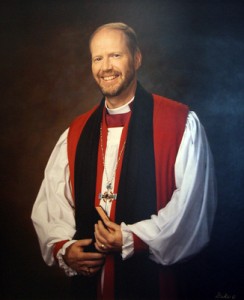 Over the last decade online learning has grown from a niche market to something that touches nearly everyone. Increasing numbers of students take online courses as part of their educational programs in K-12 and higher education, and employers continue to shift more and more of their training to online formats. Given these shifts, it is logical to assume that the future of education in the context of congregations will include online learning.
Over the last decade online learning has grown from a niche market to something that touches nearly everyone. Increasing numbers of students take online courses as part of their educational programs in K-12 and higher education, and employers continue to shift more and more of their training to online formats. Given these shifts, it is logical to assume that the future of education in the context of congregations will include online learning.
The Rt. Rev. Kirk Smith, bishop of the Episcopal Diocese of Arizona, suggests that online learning will have an ever expanding role in the future of education on the congregational level. He cites “accessibility, affordability, (and) flexibility,” as key components that will help grow this form of ministry.
So What?
I suspect that the majority of my readers have participated in at least one MOOC (Massive Open Online Course). Many of you have also participated in some form of training for your professional pursuits online. Online learning is mainstream, but isn’t yet as widespread in churches as in other sectors.
- Does your church currently offer any courses, workshops or learning events that are 100% online? If not, are such being considered?
- Do “accessibility, affordability, (and) flexibility,” make online learning more attractive for you than on campus learning when it comes to classes that your church may offer in the future?